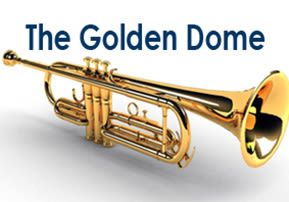
The Golden Dome – David Dome
A golden voice, a golden guitar, and golden melodies – that’s David Dome, London’s Breslever optometrist turned troubadour, who we’re sure to hear more about...

Not long ago, I was in London. It wasn’t Buckingham Palace that attracted me most, and certainly not Piccadilly Circus. I saw a “golden Dome” – not the kind you’re thinking about on the top of a big cathedral of something – but a human type. His name is David Dome, a musician, singer and composer with as a soul as sweet as his fabulous melodies.
Today, David Dome is an observant Jew with strong leanings toward Breslev. He didn’t grow up that way. Fantastically talented and just as humble, David was raised in Kenton, Middlesex, part of North West and Greater London, he attended St. Columba's College, a school run by Canadian and American Catholic monks. Today he is a Baal Teshuva and an optometrist, an amazing mitzvah-man who takes care of the eyes of the eyes of elderly and dementia patients in nursing and care homes in rural area of the UK. Travelling around the countryside gives him plenty of beautiful opportunities for hitbodedut.
Breslev Israel: David, tell us about your spiritual journey:
DD: I was born into a secular family in London ,UK . My father , may God bless his soul , was descended from Vorke Hassidim and my mother from Turkish Jews of Izmir and Istanbul , there is some “yichus“ I have found from the Turkish side which I won't go into , I feel I have to be worthy before I start to quote names. Life is about where I am right now so I don't rely on yichus.
I grew up with both Ashkanasi and Sefardi influences in a cultural way with almost no religious observance aside from standing outside the shul on "high holy days" wasting time with the crowd I was hanging with. My mother’s family seemed much more spiritually connected even though there wasn’t any religion practiced. The Sefardi food was a culinary delight too. When faced with Gefilte Fish or Kiftes de Prassa (minced beef or lamb with leeks), the Sefardi influence won the toss !
My father spoke fluent Yiddish , my mother speaks fluent Ladino and because both weren’t spoken in the house I know English pretty well!
BI: But you grew up in a non-Jewish environment, true?
DD: I went to a catholic school where I was one of 3 Jews out of 600 Xians.
BI: Did you have any thirst for spirituality?
DD: I was always interested in books on outer body and psychic experiences and even joined a spiritual circle to develop "spiritual" connections. Then one day I had an experience of a presence coming through saying “David , this isn’t Truth , GET OUT ! I strongly advise anyone to stay away from such things as it creates spiritual darkness in a deep way .Vibes with kedusha , Torah , simcha and hitbodedut is the only real way.
BI: So what happened?
DD: I got out .Once I left that darkness behind one thing led to another and Hashem guided me to a shiur I didn’t want to go to. My Uncle was visiting from Israel and asked me to join him. I went because I love my Uncle not because I wanted to hear a Rabbi preach. He told a story of how Hashem, to wake us up, sends us tribulations . I related to that having been through some really horrible times. I realized I was being called back to Torah, after too many generations before me had walked away from it.
BI: Did your move have an effect on your family?
DD: Certainly; since then all of The Domes, Baruch Hashem, are now baalei teshuva, my Mum, Brother, Uncle, his kids, and my wife and kids. Quite a miracle…
BI: What inspired you to begin writing songs?
DD: As an emotional teenager I used to write dirges in my room, complaining and moaning about typical teenage angst. Looking back, I realize that I was praying to God .Even though the mood was often sad, I was reaching out.
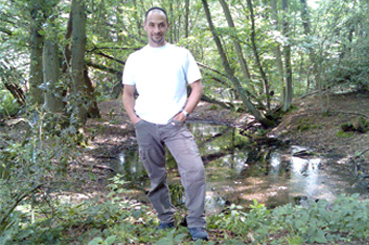
When I became a baal teshuva years later I followed the mainstream programs that Anglo Jewry had to offer but I found it hard to connect to what was being taught. For me I wasn’t finding spiritual nourishment. Gemara was on the menu and more Gemara but I lacked the tools to absorb or make connections. I wasn’t really growing or being shown how to rectify my character flaws. I felt too many people were hiding behind their learning, looking the part, saying all the right things but ultimately appearing uptight .Where was the joy? Why weren’t they smiling more? Why wasn’t I smiling more?
At that time my son became very ill. He was born with bilateral kidney blockage .I went to the grave of the Shotzer Rav in Enfield , UK to pray to Hashem for his good health. I prayed my heart out. Baruch Hashem, he's well. However, I believe as the Heavenly Court opened my file in Shamayim, the Shotzer Rav's influence led me to Rabbi Lazer Brody who was the understudy of The Melitzer Rebbe, the great grandson of The Shotzer Rav. By the way – coincidence or not – Rabbi Brody's Hebrew name is the same as my father's.
One day I was surfing the net and found a site for baalei teshuva in the USA. I checked it out hoping to find any like-minded people struggling to find their place in Judaism. Unfortunately even on that site people still seemed to be very polite and say the right thing at the right time without daring to ask or say anything outside their comfort zones.
Then I found a question which Rabbi Lazer Brody was asked to respond to. His response was to me like an oasis in a desert. His response was truthful and he didn’t seem to mind giving it straight and that’s what I needed, some straight talking.
BI: Did you make a personal connection with Rav Brody?
DD: I contacted Rabbi Brody. I was in a very negative mindset and was somewhat disillusioned with what Orthodoxy in the UK had to offer. I was also in need of a Rabbi and spiritual guide capable of bringing me to next world after 120 years and goes outside the comfort zone. I had good intentions that were lacking in Emuna; long faces everywhere telling me to learn, learn , learn. I wasn’t inspired. I started to write songs again as if I needed to express how I felt about where I was at. I had a really lousy recording program on the computer to record them with. It had multi-track but all the songs back then had the hum of the computer in the background. Still, I had to write and sing. I needed it more than anything else. I poured everything into those songs.
BI: So where does Rav Brody enter the picture?
DD: I sent a song to Rabbi Brody called “The Wedding” which he liked. He send me an email asking, “So David, when do we get the CD?”
I thought, “Me? A CD? Rabbi Brody thinks I can make a CD!”. The yetzer told me not to waste my time. But I kept going back to the email, I read it over a hundred times: “David, when do we get the CD?” With a few words of encouragement, Rabbi Brody changed my life entirely – he gave me hope.
BI: Then what happened?
DD: I bought a digital multi-track recorder which was an act of faith as it cost a more than a few quid, which I didn’t have. B’’H , my wife’s family helped me out and after spending 6 months trying to work out how the thing worked, I started to record songs of better quality. I sent them to Rabbi Brody. I know how extremely busy he is, yet he heard them and commented on all of them. When I was off course he’d tell me, “Sounds like a cacophony, remember to keep it simple!” When they were good he’d say, “Beautiful!”
BI: Probably one of your best known and most moving songs is “Hashem’s Commando.” How did that come about?
DD: I wanted to show my appreciation to the Rav and decided to write a song for him – Hashem’s Commando. In my mind, it’s the best song I’ve done. Hashem sent me the words and the musical ideas. As I started recording, I heard the sounds I should try to make in my mind’s eye and I played better than I could ever have expected. I really was just a shaliach, and it’s in Rabbi Brody’s merit that it turned out so beautifully. I believe Hashem was giving him a kiss through the work of my hands. Within an hour is was done.
BI: How did Rav Brody react when you first sent it to him?
DD: He sent me an email saying, “You’re responsible for the tears on my keyboard!”
BI: And since then?
DD: Since then I have continued to work on my middot and my Emuna with the help of Rabbi Shalom Arush’s and Rabbi Lazer Brody’s books "The Trail To Tranquility", "The Garden Of Emuna" ,"The Garden Of Yearning","The Garden Of Peace" and "In Forest Fields". The Cds are like "screen savers" for the soul. You end up having Hashem in your mind nearly all the time. I learn Likutei Mohoran and do hitbodedut daily.
I have an awful lot to be grateful for. Anyone who has read these books will know what I mean. There are open miracles that my family have experienced with regard to health. The power of pidyon nefesh must never be underestimated. If anyone needs help I strongly urge them to consider approaching Rabbi Shalom Arush and the Melitze Rebbe to pray for them via pidyon nefesh.
I now feel like a true child of Hashem. Music is part of my purpose to share with others what it’s like to go through the ups and downs of being a baal teshuva, to tell people, “It’s ok , life is what happens when you’re properly connected.” To quote Rabbi Brody again, “…do your best and be happy!”
BI: Where can people buy your songs?
DD: For now,the best place is Itunes. I’ve produced 5 albums so far. The early ones are quite raw yet meaningful, the more recent ones are musically more refined as, B’’H, I’ve developed the musical and production skills. I learn more with every song.
BI: How has Rebbe Nachman influenced you?
DD: Having learned Rebbe Nachman’s lesson #54 about how by playing music with an instrument one can separate the good spirituality from the dark side spirituality, by concentrating on finding joy in even the dark places, to redeem the moment and bring it into the side of kedusha, I hope to continue with Hashem’s loving kindness to bring Jewish music using many genres, into the hearts and minds of my brothers and sisters. I want to sing about the things that people around me seemed too nervous to confront: emuna , gratitude, anti-hypocrisy and that it 's cool to live a Torah life, you don't lose a thing you only gain.
More than anything I am grateful to my wife Denise for putting up with me recording while the family sleep ( it’s the only time it’s quiet enough to record ) and to Rabbi Brody for bringing Hashem into my life daily and to Hashem for guiding me to the right teachers.
BI: Thanks so much for being with us, David. What would be one quote that reflects where you are now?
DD: “Do your best and be HAPPY!”


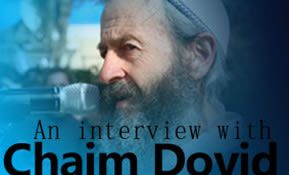
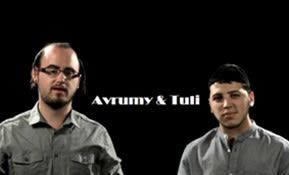
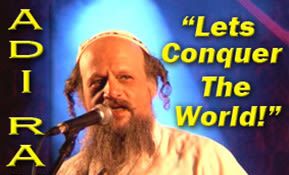
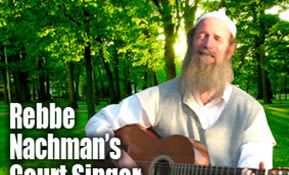
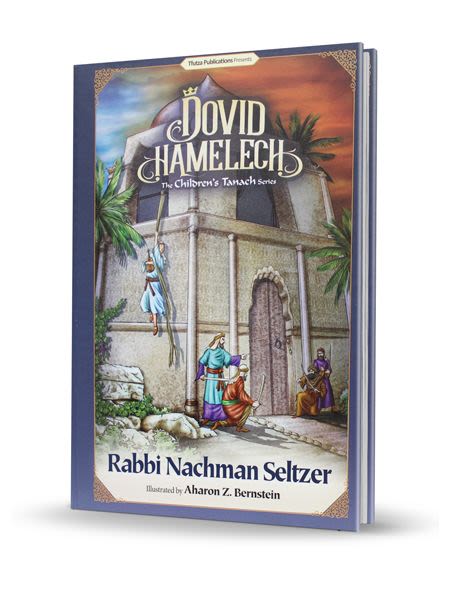
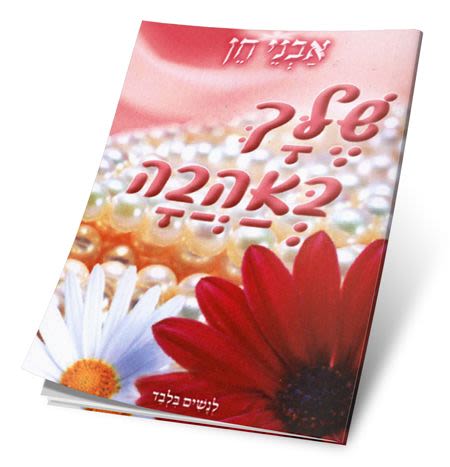
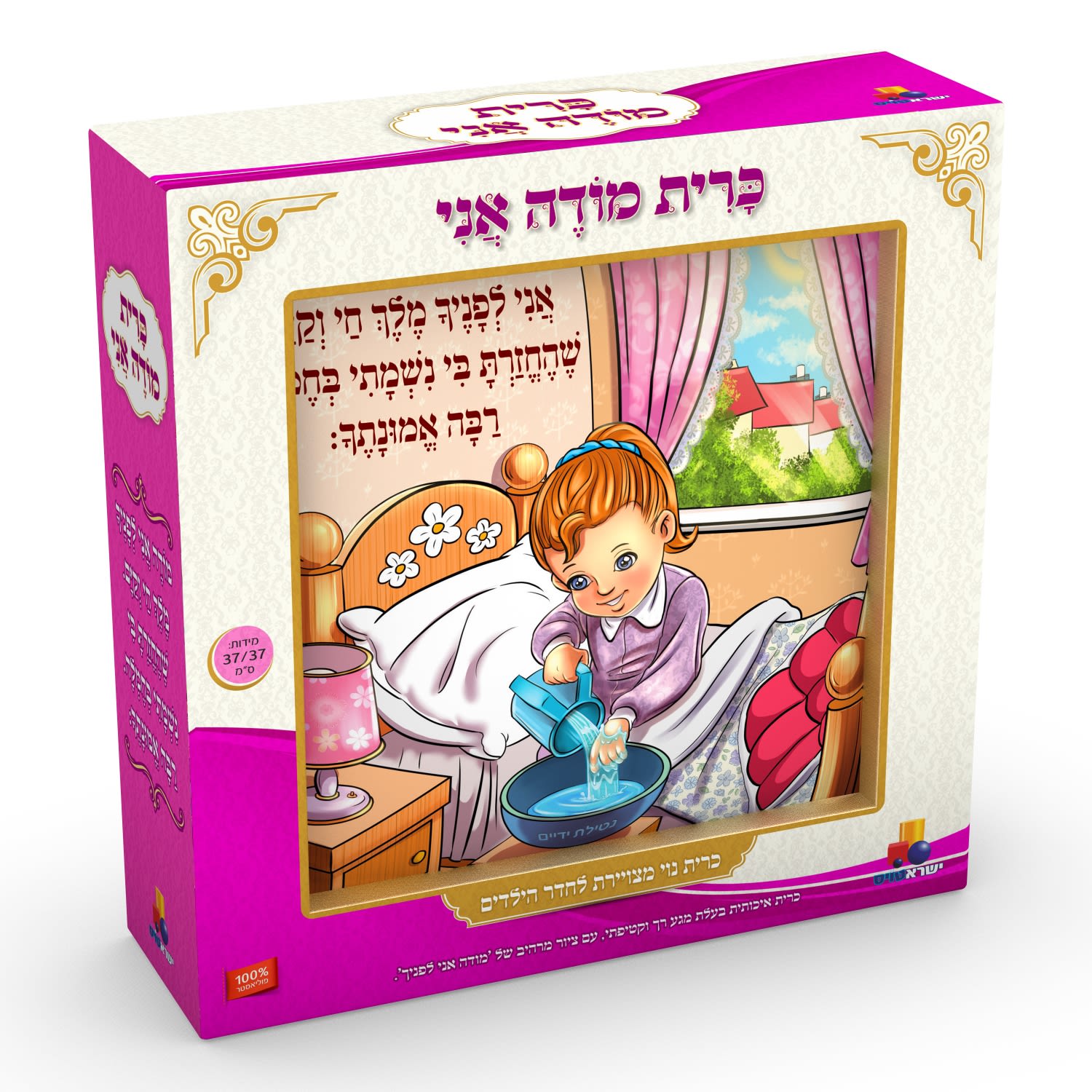
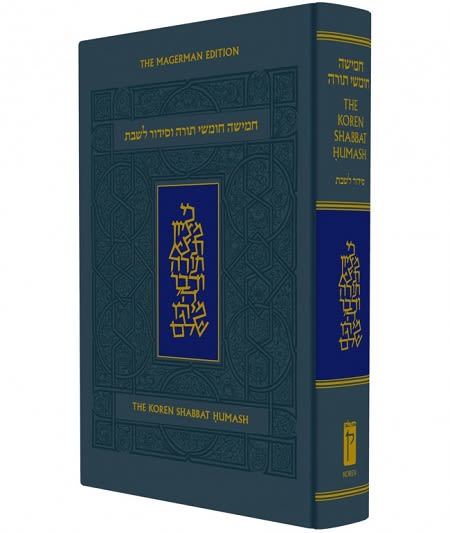
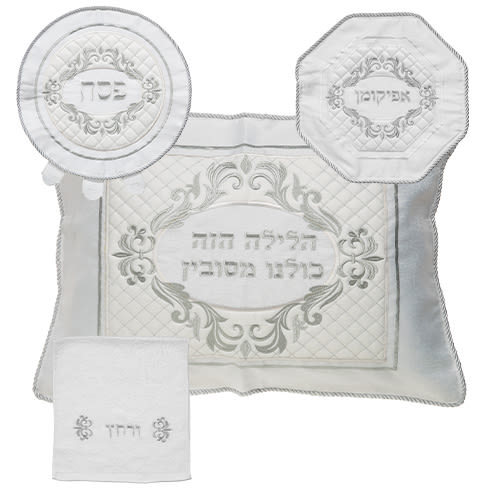
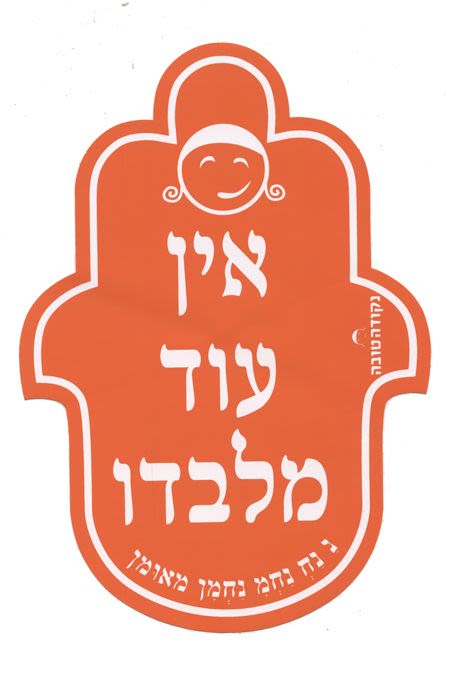
Tell us what you think!
Thank you for your comment!
It will be published after approval by the Editor.